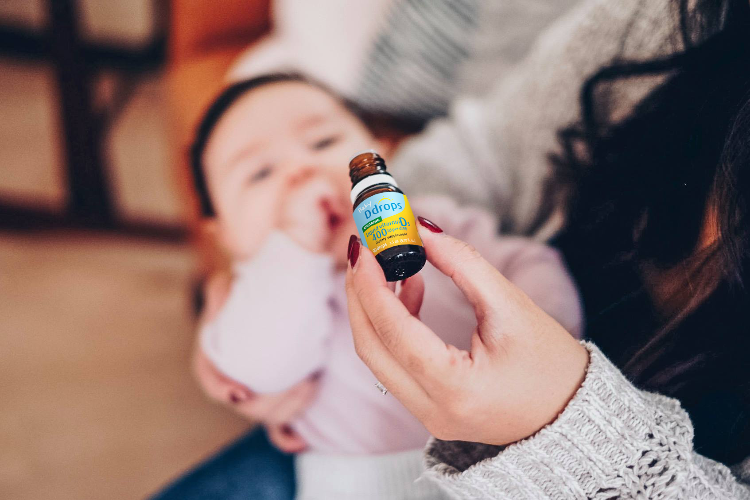February 19, 2016
Children who breastfeed beyond one year may get too little vitamin D, according to a new Canadian study. The study, published in the American Journal of Public Health on February 18th, found that the longer that a child breastfeeds, the greater their odds of having low levels of vitamin were.[1]
“The longer the child breastfeeds beyond a year of age, the lower the vitamin D levels go. That decline is entirely preventable with vitamin D supplementation. Children who are receiving vitamin D supplementation and breastfed over a year of age didn’t have that decline in levels,” said senior author Jonathon Maguire, MD, pediatrician and researcher at St Michael’s Hospital in Toronto, Ontario. “Current recommendations about vitamin D supplementation should continue through whatever duration of breastfeeding.”
The children were participating in TARGet Kids!, a collaboration between St. Michael’s Hospital and The Hospital for Sick Children in Toronto.[2] Maguire and his coauthors studied how long children were breastfed and what their blood vitamin D levels were using data from approximately 2,500 healthy children between the ages of one and five. Mothers reported how long their child had been breastfed, and whether their child was taking vitamin D supplements or not. Blood samples were collected from the children. Half of the children had been breastfed for 10 months or more, and 53 per cent received vitamin D supplements.
As breastfeeding duration increased, blood vitamin D levels decreased for children who did not take supplements. For every month of additional breastfeeding time, the odds of abnormally low vitamin D levels increased by six per cent.
“For each additional month of breastfeeding beyond a year of age, the vitamin D level goes down and it keeps going down,” said Maguire. “But for children who are continuing to receive vitamin D supplementation, the vitamin D level in their blood does not go down.”
The pattern was so consistent that researchers predicted 16 per cent of two year olds breastfeeding and not receiving extra vitamin D would be seriously deficient, and by age three, that would rise to 29 per cent.
Breast milk does not provide enough vitamin D, especially for people in northern parts of the world, which is why the Canadian Paediatric Society recommends that breastfed children take 400 IU of vitamin D supplements daily until age one.[3] The World Health Organization recommends exclusive breastfeeding through the first six months of life and continuing it in addition to solid foods for the first and second years, as mutually desired by mother and child.
“We’re not saying that breastfeeding is not a really great source of nutrition, but up here in the northern parts of the world not much vitamin D passes through breast milk,” said Maguire.
For children who did take supplements, breastfeeding duration was not tied to vitamin D levels.
These results support the American Academy of Pediatrics’ recommendation of vitamin D supplements during breastfeeding.
“We’ve known for a long period of time that giving a very inexpensive vitamin D supplement to children who are breastfeeding just plain works,” Maguire said.
[1]https://ajph.aphapublications.org/doi/abs/10.2105/AJPH.2015.303021[2]https://www.targetkids.ca
[3]https://www.cps.ca/en/documents/position/vitamin-d
[4]https://www.who.int/nutrition/topics/exclusive_breastfeeding/en/




Tinggalkan komentar
Situs ini dilindungi oleh hCaptcha dan berlaku Kebijakan Privasi serta Ketentuan Layanan hCaptcha.